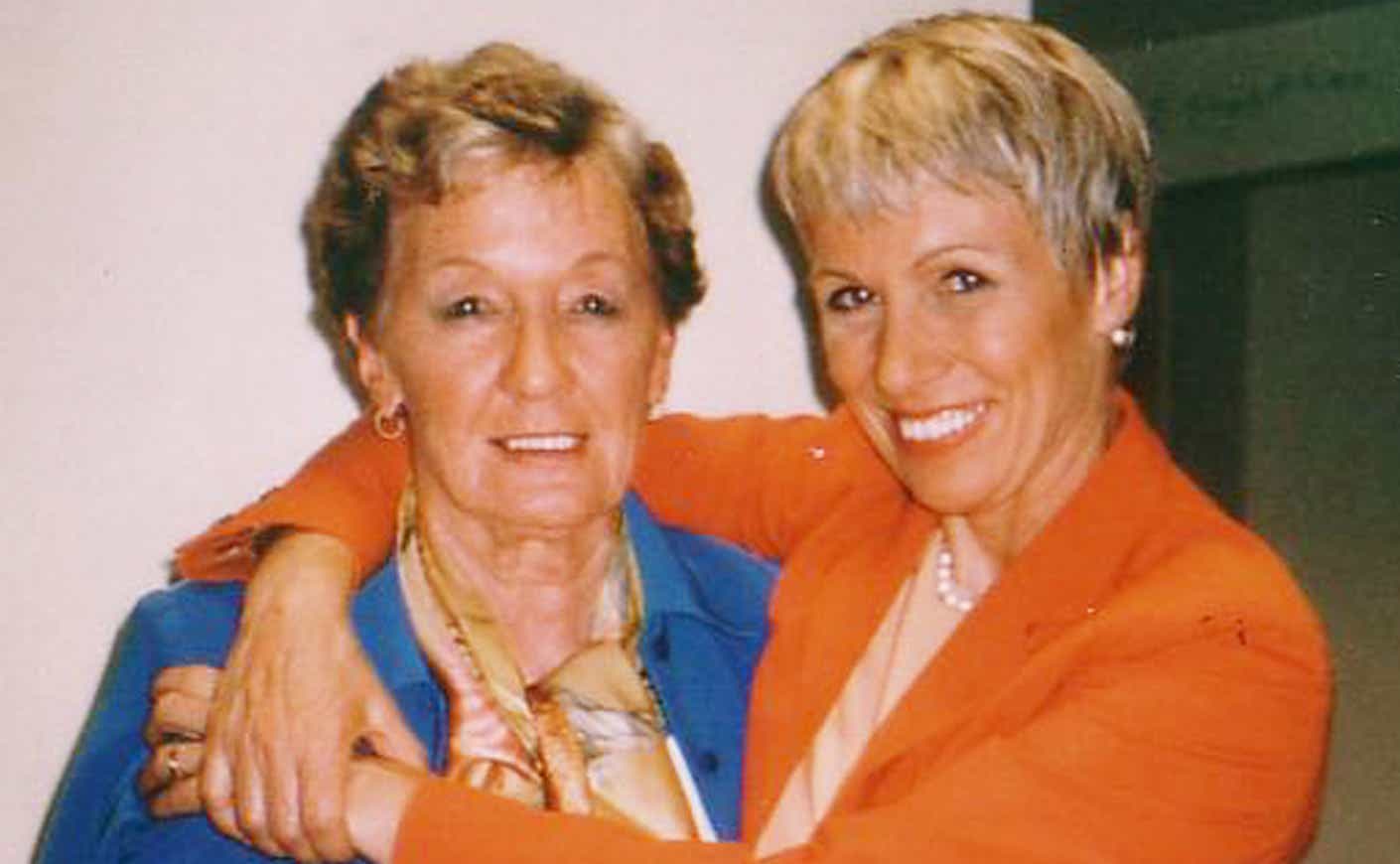You probably know Barbara Corcoran as the feisty real-estate-mogul-turned-“shark.” You may even be familiar with her rags-to-riches story (i.e., a working-class Jersey girl builds her company from the ground up and sells it for $66 million).
But one thing you likely haven’t heard about the 75-year-old is that as she starred on the hit ABC show, she had quietly been caring for her mother Florence Corcoran, who was diagnosed with Alzheimer’s in 2003. As Corcoran's star continued to rise and as she raised two kids of her own (she had her first at 46 via IVF and her second at 56 via adoption), her mother had developed a particularly devastating form of the disease, characterized by frequent mood swings and aggression that can often make the patient seem unrecognizable even to their closest family.
“She was always so loving and caring and then all of a sudden she was angry, agitated,” Corcoran tells us in an exclusive interview. “It was like, ‘Who is this woman?’”
Florence died 12 years ago at the age of 88, after a lengthy battle with what’s known as agitation in Alzheimer’s dementia. But Corcoran, who’s led a very public life — openly discussing her dyslexia, her decision to use IVF, even being cheated on (more on this later) — only recently felt ready to talk about this painful chapter.
“The difficult part was seeing that blank look in my mother’s eyes. To see the lights go out so slowly in a woman who was so bright and engaged and vital,” Corcoran says.
Corcoran opened up about what this ordeal was like for her and her nine siblings and why she’s speaking out now — plus, she dished on Mark Cuban’s exit from Shark Tank, the best career advice she ever received, and more.
Katie Couric Media: What made you want to discuss your mother and her battle with agitation in Alzheimer’s?
Corcoran: It actually took me a long time to deal with it. It was partly because I saw my face in my mother’s face. We looked a lot alike, and everyone always said that I was a chip off the old block. I always took pride in that, but along the way, I had this fear that, because I’ve always been forgetful, I’d be next. My mother had it, her four brothers died from it, and I just thought it was my destiny. It wasn’t until about eight months ago that I got the courage to get myself checked out.
First, I tried 23andMe and their test showed that I had two chromosomes, which could go either way. Then I went to a doctor and went through a battery of tests, and he said, "You don't have [Alzheimer's]." I couldn't believe it.
What was it like for you during this period when you and your nine siblings were caring for her?
It was difficult. I think it’s abnormal for a child to feel like an adult to their own parents; it’s not a natural thing. But dementia is so tough. We expected that eventually she wouldn’t recognize us, but her blank stare toward the end — I can’t shake that. The emptiness that comes with dementia was the hardest part for me.

What advice would you give someone caring for a patient with this specific Alzheimer’s condition?
I think the two most important things are to have somebody hold your hand — don’t go it alone. Find a support group, because it’s such a rough disease emotionally that you need to join hands with someone.
The other thing I learned from my brother: He told us that it’s important to step inside her world. She used to come to me saying, "I have snakes under my bed." And I’d argue with her and couldn’t calm her down. He taught me and my other siblings that it was much better to get down with a broom and start swiping at the snakes. He said It’s an insult to her dignity not to respect her world as real. And once we started doing that, it took away a lot of her angst and made her so much happier as a person.
We can’t let you go without asking about your fascinating career. What’s the best piece of work advice you ever received?
It wasn’t advice, it was an insult. I think I respond well to insult. Anyway, my boyfriend and business partner at the time, Ramone Simone, went off and married my secretary. At the time I had just turned 30, I thought, I’m not married, I’ll never find a husband, the secretary is three years younger and much prettier. I don’t have any hope. Of course, if I had known then how good I looked, I would have run around naked. But he told me, "You’ll never succeed without me." And I knew I’d rather die than prove him right. I should write him a thank-you note today because it motivated me to get even.
Mark Cuban is leaving Shark Tank after 16 seasons. What has it been like working with him?
I just came back from shooting the final episode with him. It was bittersweet. Mark sits right next to me, does my math for me, always approves of what I do. It felt like losing a big brother. No matter what he says, I don’t want him to go. He’s my favorite guy on set — partially cause he’s the richest, I have to admit — but also because what you see is what you get with Mark.
We just won an Emmy, too; we hadn’t had one in seven years, and it was so wonderful that we were all there together for it. It was just a great ending for that chapter.
This interview has been edited and condensed for clarity.









